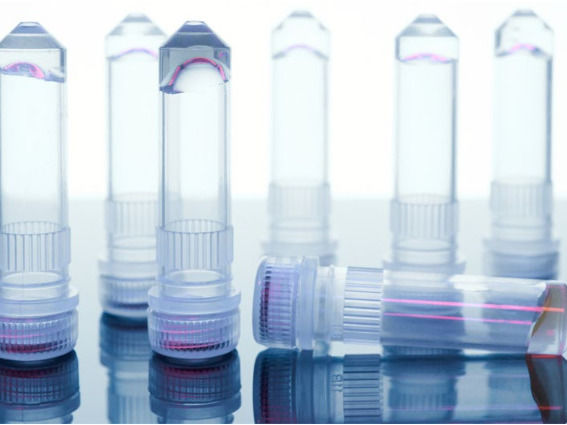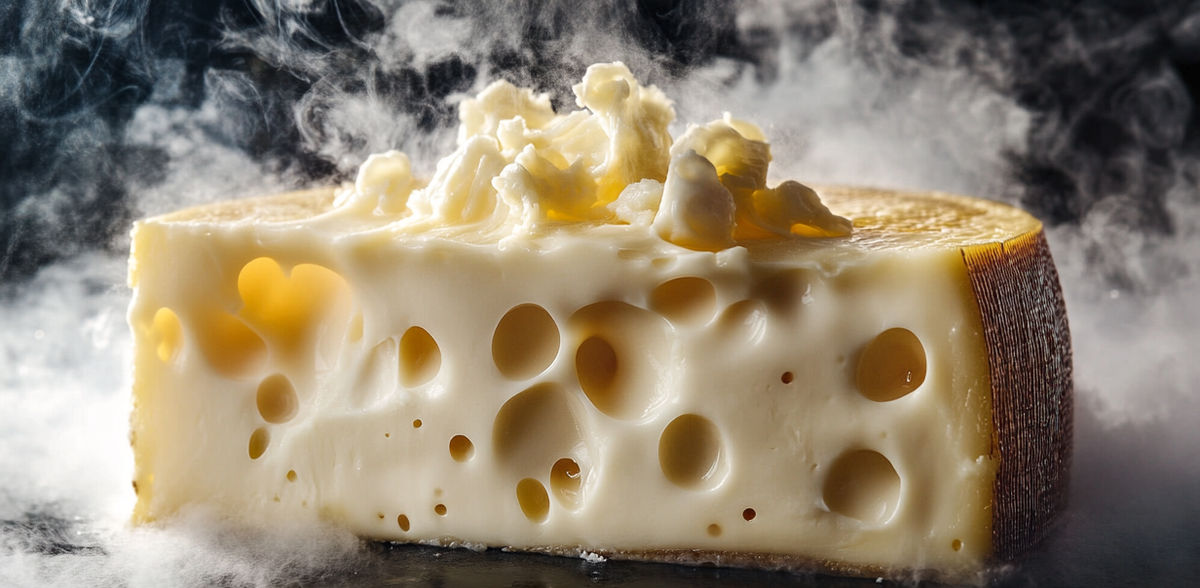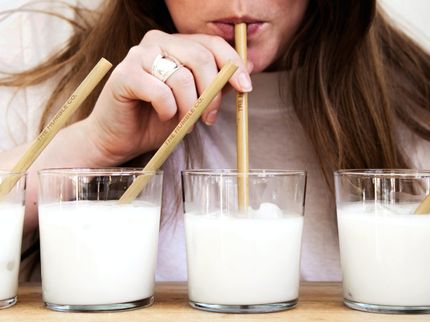Full-bodied cheese flavor–prediction of flavor development soon possible thanks to new method
peptides formed during cheese ripening are crucial for the full-bodied flavor of aged cheeses, known as kokumi. A research team led by the Leibniz-Institute for Food Systems Biology at the Technical University of Munich has now developed a new method to analyze these flavor-relevant peptides precisely, quickly, and efficiently. Based on more than 120 cheese samples, the team has also created a database that can be used in the future to predict flavor development during cheese ripening.

Loading sample material into a mass spectrometer.
J. Krpelan / Leibniz-LSB@TUM
The term kokumi derives from Japanese and refers to a full-bodied and long-lasting taste experience. The taste impression is particularly pronounced in aged cheeses, mainly due to the increasing concentration of gamma-glutamyl dipeptides. These are small molecules that consist of a link between glutamic acid and another amino acid.
Depending on how the two amino acids are linked, researchers distinguish between gamma-, alpha-, and X-glutamyl dipeptides, with the latter two not contributing to the kokumi effect. The high polarity of the glutamyl dipeptides, as well as their great structural similarity with different flavor contributions, represent a major challenge for food analysis.
Efficient analysis method developed
Nevertheless, the team led by principal investigator Andreas Dunkel of the Leibniz Institute has succeeded in developing a new efficient analysis method based on ultra-high performance liquid chromatography-mass spectrometry. For the first time, it can precisely and selectively determine the concentrations of all 56 gamma-glutamyl dipeptide variants in just 22 minutes. Optimized sample preparation makes it possible to analyze 60 cheese samples per day.
“This is a significant improvement compared to other methods. Our tests have shown that our method is faster, more efficient, and yet reliable – it delivers reproducible results and detects even the smallest concentrations,” says first author Sonja Maria Fröhlich, a doctoral student at the Leibniz Institute. To further investigate the influence of ripening time on gamma-glutamyl dipeptide concentrations, the researchers applied the method to 122 cheese samples from Europe and the USA after the test phase. The ripening times of the cheese ranged from two weeks to 15 years.
Mold cultures accelerate flavor development
The results show that, as expected, the concentrations of glutamyl dipeptides increase with increasing ripeness. “Interestingly, the addition of blue and white mold cultures led to significantly higher gamma-glutamyl dipeptide concentrations, even at shorter ripening times,” says Andreas Dunkel, who heads the Integrative Food Systems Analysisresearch group at the Leibniz Institute.
The food chemist adds: “The concentration profiles we have determined for different stages of ripening and different types of cheese can be used in the future as a database for prediction models. The latter could, for example, be used to objectively monitor flavor development during cheese ripening, to shorten ripening times, or to develop new plant-based cheese products with high consumer acceptance.”
“In the sense of an interdisciplinary, food systems biology research approach, one of our goals is to combine analytical research results with bioinformatic methods to develop predictive models suitable to support sustainable food production. This is also the starting point of the project led by Andreas Dunkel,” concludes Veronika Somoza, director of the Leibniz Institute.
Original publication
Sonja Maria Fröhlich, Manon Jünger, Verena Karolin Mittermeier-Kleßinger, Corinna Dawid, Thomas F. Hofmann, Veronika Somoza, Andreas Dunkel; "Towards prediction of maturation-dependent kokumi taste in cheese by comprehensive high throughput quantitation of glutamyl dipeptides"; Food Chemistry, Volume 463
Most read news
Original publication
Sonja Maria Fröhlich, Manon Jünger, Verena Karolin Mittermeier-Kleßinger, Corinna Dawid, Thomas F. Hofmann, Veronika Somoza, Andreas Dunkel; "Towards prediction of maturation-dependent kokumi taste in cheese by comprehensive high throughput quantitation of glutamyl dipeptides"; Food Chemistry, Volume 463
Topics
Organizations
Other news from the department science

Get the food & beverage industry in your inbox
By submitting this form you agree that LUMITOS AG will send you the newsletter(s) selected above by email. Your data will not be passed on to third parties. Your data will be stored and processed in accordance with our data protection regulations. LUMITOS may contact you by email for the purpose of advertising or market and opinion surveys. You can revoke your consent at any time without giving reasons to LUMITOS AG, Ernst-Augustin-Str. 2, 12489 Berlin, Germany or by e-mail at revoke@lumitos.com with effect for the future. In addition, each email contains a link to unsubscribe from the corresponding newsletter.
Most read news
More news from our other portals
Last viewed contents

Increased frequency of eating eggs in infancy associated with decreased egg allergy later on - Study shows children not introduced to egg at one year were more likely to have egg allergy at 6 years

First global standards to ensure responsible marketing of alcohol by social media influencers
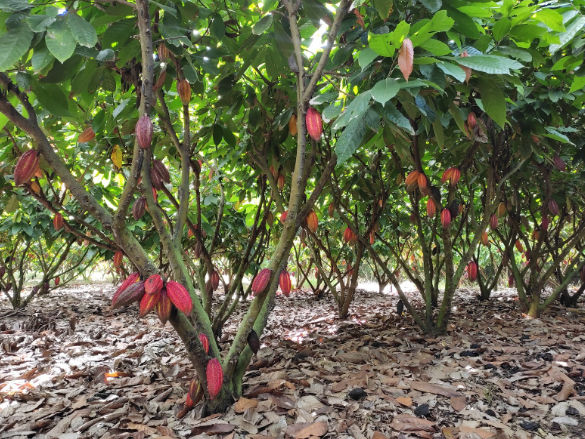
Barry Callebaut establishes Farm of the Future to power cocoa farming research and innovation

Unlocking the genetic keys to cucumber perfection: A new player in flower and fruit development

"l Belong Here': Joint Coca-Cola/lOC Digital Platform Shows Why the Olympic Games Are for Everyone
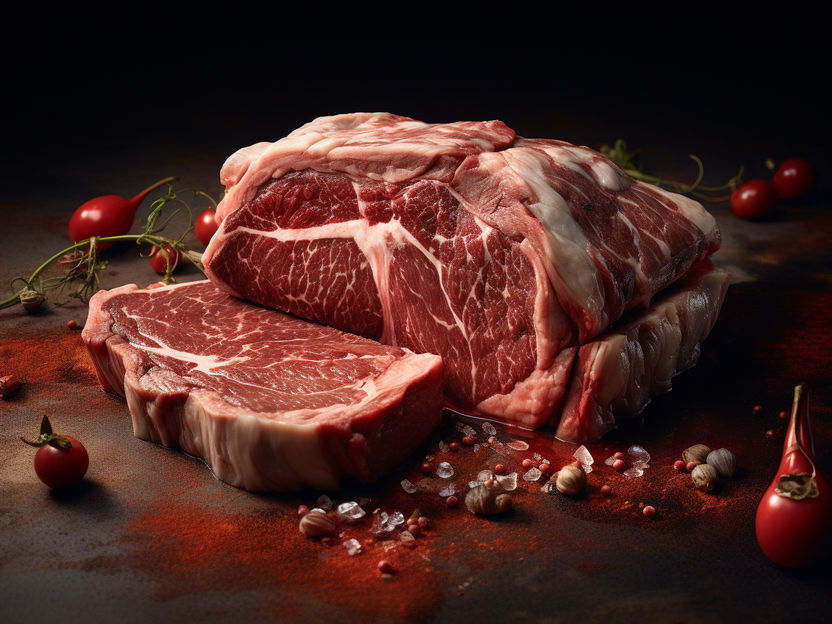
New research demonstrates beef meals result in higher muscle protein synthesis rates than vegan meals - Evidence adds to growing body of research showing protein food sources are key to building and maintaining muscle
